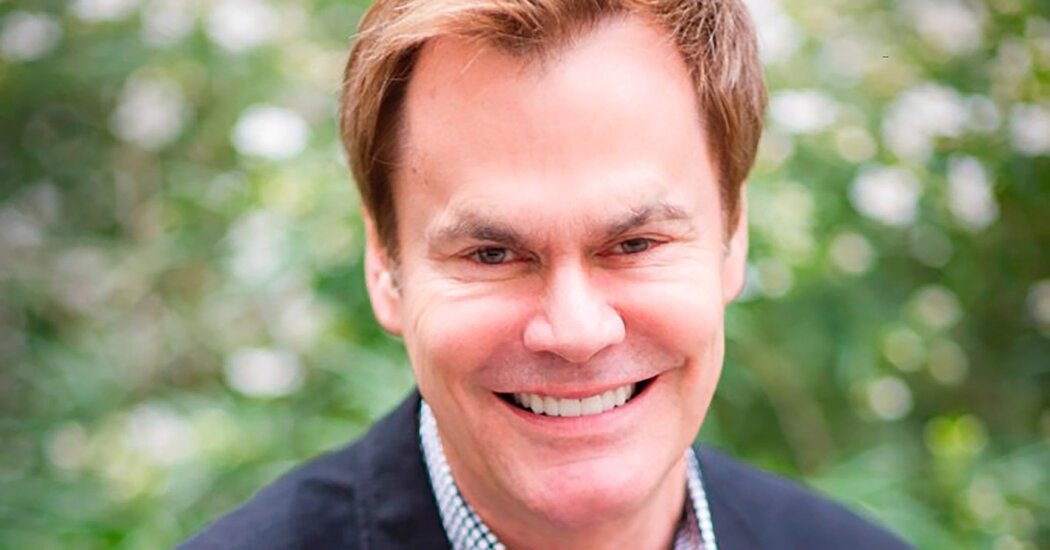Bruce Bastian, a founding father of the WordGood Corporation, whose phrase processor was the favored device for writing throughout the early days of private computing — and who later, after popping out as homosexual, renounced his Mormon religion and funded L.G.B.T.Q. causes — died on June 16 at his dwelling in Palm Springs, Calif. He was 76.
Michael Marriott, the chief director of the B.W. Bastian Foundation, mentioned the trigger was issues of pulmonary fibrosis.
Mr. Bastian was ending graduate college at Brigham Young University within the late Seventies when he based the corporate that grew to become WordGood with Alan C. Ashton, his pc science professor and a grandson of David O. McKay, the influential former president of the Church of Jesus Christ of Latter-day Saints.
In the Nineteen Eighties and early ’90s, Mr. Bastian and Mr. Ashton had been on the forefront of constructing computer systems extra productive for every day duties. Years later, they grew to become adversaries within the authorized battle over homosexual marriage.
Highly customizable, with a free buyer help line, WordGood emerged from a crowded market of upstart phrase processors because the go-to alternative of recent private pc customers. (Among its followers was Philip Roth, who used it till he retired in 2012, lengthy after this system was supplanted in recognition by Microsoft Word.)
“WordGood had a popularity for being very user-friendly,” Matthew Kirschenbaum, an English professor on the University of Maryland and the creator of “Track Changes: A Literary History of Word Processing” (2016), mentioned in an interview. “It was clear and fashionable. Most of the display screen was given over to the doc you had been writing, versus plenty of menus and the equipment of the software program.”
Mr. Bastian wrote a lot of the software program code. Mr. Ashton ran the enterprise aspect. By 1991, the corporate managed 50 p.c of the phrase processing market and was producing greater than $500 million in gross sales. It employed greater than 4,000 individuals, most of them on the firm’s headquarters in Orem, Utah — a whole lot of miles from Silicon Valley.
“In a world during which Silicon Valley firms thrive, WordGood Corp. is a little bit of an oddball,” Personal Computing journal wrote in a 1988 cowl article concerning the firm. “At 4,000 toes above sea stage, Utah’s Great Basin isn’t precisely high-tech headquarters. The air in Orem is dry in December, the snow falling on the Wasatch Front east of Salt Lake City is the powdery fluff knowledgeable skiers crave.”
The firm’s location wasn’t the one oddity.
“There’s one other factor that distinguishes this high-tech firm from most others,” the journal famous. “Like two-thirds of Utah’s inhabitants, most WordGood workers are Mormons.”
That included each its founders — one in all whom was harboring a secret that tormented him.
In 1976, Mr. Bastian married his greatest buddy, Melanie Laycock. They finally had 4 sons. But all alongside, he later instructed interviewers, Mr. Bastian knew he was homosexual.
Sometime within the late Nineteen Eighties, whereas on a enterprise journey in Amsterdam, he kissed one other man.
“When I acquired again to Utah, I used to be a large number,” Mr. Bastian mentioned in an interview with Outwords, a company that information oral histories concerning the L.G.B.T.Q. motion. “It was simply so transformational and so tough. I stroll within the door and see my little boys and I simply thought: ‘Uh, jeez. What am I going to do?’”
He instructed his spouse a couple of days later.
“We tried to make it work,” he instructed Outwords. “I attempted to be homosexual and be a Mormon on the identical time. That’s unimaginable.”
Mr. Bastian got here out publicly a couple of years later and withdrew his identify from the information of the Mormon Church. He acquired nameless emails from individuals expressing their disgust about his sexuality. Still, he felt liberated.
“It was such a reduction to truly not need to lie anymore,” he told the podcast “Mormon Stories.”
But there was bother brewing in WordGood’s enterprise.
The firm’s software program dominated the marketplace for computer systems operating on the MS-DOS working system, nevertheless it was gradual to roll out a model for the rising Microsoft Windows platform. Microsoft additionally bundled Word into its productiveness suite of applications, Microsoft Office, which rapidly ate into WordGood’s market share.
In 1994, Mr. Bastian and Mr. Ashton offered their privately held firm to Novell for $1.4 billion. Novell later offered the software program to Corel, which is now generally known as Alludo. WordPerfect nonetheless has a loyal following within the authorized world.
Mr. Bastian left the corporate after the announcement of the sale to Novell. Through his basis, he grew to become a significant philanthropist, funding arts and cultural applications all through Utah. He additionally supported L.G.B.T.Q. causes and joined the board of administrators of the Human Rights Campaign, an L.G.B.T.Q. advocacy group.
In 2008, the Mormon Church urged its members to financially help the passage of Proposition 8, a poll measure in California outlawing same-sex marriage. Mr. Ashton contributed $1 million.
“I needed to verify the long run is sweet for my kids and grandchildren,” he told The Salt Lake Tribune. “That’s why I gave.”
Mr. Bastian contributed $1 million to opposition efforts.
The episode, he mentioned, left him feeling betrayed by Mr. Ashton. It was, he instructed The Tribune, “ actually painful for me.”
Bruce Wayne Bastian was born on March 23, 1948, in Twin Falls, Idaho. His father, Arlon, owned a grocery retailer and a farm and was additionally a musician. His mom, Una (Davis) Bastian, managed the family.
He majored in music schooling at Brigham Young University, graduating in 1975. He was the director of the college’s marching band and, with Mr. Ashton, wrote a program that helped choreograph performances. He acquired his grasp’s in pc science in 1978.
In 1985, The Orem-Geneva Times took notice of the native firm’s success.
“It’s exhausting to imagine,” the newspaper wrote, “that an organization with such humble beginnings might develop into one of many main opponents (if not the most important) within the microcomputer phrase processing trade.”
Mr. Bastian and his spouse divorced in 1993. She died in 2016.
He married Clint Ford in 2018.
Mr. Ford survives him, as do his sons, Rick, Darren, Jeff and Robert; two sisters, Camille Cox and Marietta Peterson; a brother, Reese Bastian; and 14 grandchildren.
For Mr. Bastian, popping out was each terrifying and hopeful.
“I don’t assume straight individuals can start to think about the inside turmoil and worry at this second in a homosexual particular person’s life,” he told The Salt Lake Tribune. “All your desires, plans, all the pieces falls aside. The entire basis of your life crumbles. You can keep the course or observe your coronary heart and go to the place each human being desires of going — to happiness ever after.”




